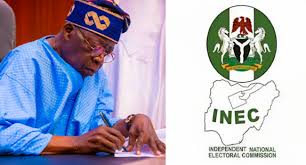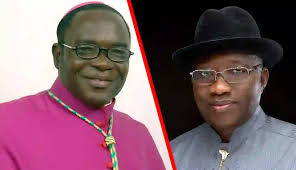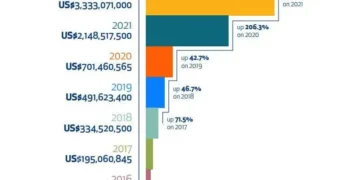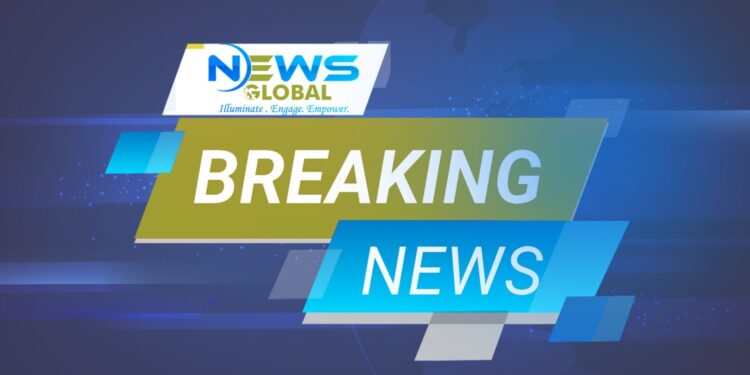Abuja, Nigeria — In what is shaping up to be one of the more intriguing political developments in recent months, Ola Olukoyede, Chairman of the Economic and Financial Crimes Commission (EFCC), was visibly present at the Presidential Villa in Abuja (Aso Rock) on Wednesday evening — a moment that coincided with a summons extended by President Bola Ahmed Tinubu to the immediate past sole administrator of Rivers State, Vice Admiral Ibok-Ete Ibas (retd.)
Reports indicate that Olukoyede, alongside Wale Edun, the Minister of Finance and Coordinating Minister of the Economy, entered the State House during the same time window that Ibas arrived to meet with the President.
The timing, setting, and cast of characters present have already generated extensive speculation over the agenda of the meeting, the possible investigations, and the broader political stakes — especially in relation to the controversial six-month emergency rule in Rivers State.
Timeline & On-the-Ground Observations:
Arrival at the Villa
- Ibas’s arrival: Vice Admiral Ibok-Ete Ibas reportedly arrived at the Presidential Villa at about 5:50 p.m. in brown native attire, carrying files.
- Other dignitaries present: Shortly after his arrival, both Wale Edun and Ola Olukoyede were spotted entering the Villa as well.
- It is currently unclear from public sources whether Olukoyede and Edun entered specifically to attend Ibas’s meeting or had other matters at the Villa.
Context: Rivers Emergency Rule and Reinstatement
To appreciate the weight of this meeting, one must recall the events in Rivers State earlier this year:
- On March 18, 2025, President Tinubu declared a state of emergency in Rivers State, suspending the then-Governor Siminalayi Fubara, his deputy Ngozi Odu, and all members of the Rivers State House of Assembly.
- Alongside that declaration, Ibas was appointed as the sole administrator to oversee the affairs of the state.
- The emergency rule was in effect for six months and ended on September 17, 2025, when Tinubu directed that Fubara, his deputy, and the suspended assembly members be reinstated.
- Following the end of the emergency, the Rivers State House of Assembly, led by Speaker Martin Amaewhule, passed a resolution to investigate Ibas’s management of state funds, contracts, and other expenditures during his tenure.
- Rivers State reportedly received at least N254.37 billion from the Federation Account Allocation Committee (FAAC) between March and August 2025 under Ibas’s oversight.
- Notably, Ibas has already rejected the resolution of the Rivers Assembly to probe his stewardship.
Thus, this meeting comes at a time when political tension, public scrutiny, and the push for accountability in Rivers State are all at a boiling point.
Possible Purposes & Agendas: What Could Be Going On?
Given the confluence of personalities, prior incidents, and political stakes, several possible scenarios emerge:
1. Accountability & Forensic Audit
The most obvious possibility: that Ibas has been summoned to account for how he managed funds, contracts, and expenditures during his six-month rule. Given the calls from the Rivers House of Assembly for a probe, the President might desire a federal-level assessment to either support or counter state legislative scrutiny.
- Olukoyede’s presence suggests that the EFCC might be involved in any investigation or probe — perhaps even laying the groundwork for formal charges or inquiries related to misuse of funds or breach of financial protocols.
- Edun’s presence could signify coordination between finance, treasury, and anti-corruption arms — for instance, reviewing audit reports, financial records, or federal allocations.
2. Political Reconciliation & Power Brokering
Another possibility is that this meeting is less about punitive action and more about political negotiation and management.
- Tinubu may be seeking to reassert control or influence over the Rivers State political landscape. Inviting Ibas to the Villa (rather than summoning him to a court or anti-corruption agency) gives more maneuvering room.
- The meeting could involve discussions on how to smooth the reintegration of Rivers into full democratic governance, manage leftover projects or contracts from Ibas’s tenure, or even broker agreements between the Fubara administration and federal authorities.
3. Preemptive Damage Control
- If there are red flags in Ibas’s stewardship, the presidency might aim to contain fallout by hearing explanations first-hand, commissioning internal reviews, or intervening before media leaks, public protests, or litigation grow uncontrollable.
- The presence of anti-corruption and finance ministers could indicate that the meeting is a preemptive mechanism to assess or validate public claims or rumors before formal processes begin.
4. Selective Enforcement / Signaling
- The meeting may also send a strong message: that even powerful military officers or crisis administrators are not above scrutiny. It could be a symbol of Tinubu’s anti-corruption posture.
- On the flip side, it might also be a signal to political rivals in Rivers (and beyond) that the federal government is ready to act — potentially encouraging compliance or discipline within party structures.
It is possible that multiple agendas interweave here — political, forensic, and strategic.
Risks, Speculation & Stakes
Political Risks
- Perception of double standards: Critics may accuse the presidency of using anti-corruption agencies as political weapons, especially in states like Rivers where political competition is fierce.
- Pushback from local actors: The Fubara administration, the Rivers House of Assembly, or key stakeholders might reject federal intervention or challenge the legitimacy of federal probes into state affairs.
- Friction between arms of government: If the EFCC or Ministry of Finance deploys strong tactics, it might clash with the state judiciary, Legislature, or even with legislators or executives aligned with Wike or Fubara.
Legal & Institutional Risks
- Due process / rule of law concerns: Any investigation must respect constitutional checks, rights of persons under inquiry, and separation of powers — failure to do so could provoke court challenges.
- Jurisdictional overreach: The federal government must be cautious about how far it probes into state affairs, lest it be accused of encroaching on state autonomy.
Political Messaging & Public Perception
- The optics are delicate. Tinubu’s administration has pledged anti-corruption fervor; how this plays out in high-visibility cases like this will heavily influence public trust.
- The narrative spun by state-level political actors, media, and civil society will influence whether this is seen as fair accountability or political vendetta.
Reactions & Stakeholder Sentiments
Rivers State Assembly & State Actors
- The Rivers State Legislature has already initiated plans to probe Ibas’s stewardship — particularly around contracts and the use of funds from the consolidated revenue during the emergency period.
- The Assembly resolution calls for exploration of “what transpired … with regard to spending from the consolidated revenue fund for the award of contracts and other expenditure.”
- Given that Ibas had reportedly rejected the probe by the assembly, tensions may arise if the federal inquiry appears to supersede or conflict with the state initiative.
Civil Society, Legal Experts, Activists
- Legal luminaries and civil society commentators have already called for clarity and transparency in how Ibas managed Rivers’ resources. For instance, on Channels TV, Ebun Adegboruwa, SAN, urged that the former administrator should publicly account for state resources.
- Activists like Ann-Kio Briggs have demanded to see terms of agreement between Fubara and Tinubu before and after emergency rule.
- Much attention is expected on media commentary, op-eds, and social media narratives. The presence of Olukoyede will amplify expectations for anti-corruption outcome.
The Presidency / Federal Government
- From the presidency, no official statement has yet been released confirming the agenda of the meeting or explaining Olukoyede’s presence.
- However, given previous handling of high-profile corruption cases, the administration may want to manage perceptions carefully — balancing transparency, legal prudence, and political control.
Rivers State Citizens and Local Stakeholders
- Citizens of Rivers State, already agitated by the emergency rule and local infighting, will watch this meeting closely. Any visible outcome — especially in the form of contract cancellations, public disclosures, or arrests — could provoke strong reactions (support or backlash).
- Public expectations around infrastructure, service delivery, and the fate of ongoing projects will likely shape how local opinion judges this meeting.
What to Watch Next: Key Indicators & Possible Outcomes
As events unfold, here are crucial signs and developments to monitor:
- Official statement from the Presidency
Whether the state house issues a press release explaining the meeting’s purpose, who was present, or reveals the outcome. - Correspondence or public summons to Ibas
Will Olukoyede (or the EFCC) formally summon Ibas for questioning? Will documents be requested (contracts, bank records, expenditure logs)? - Joint federal-state auditing team or forensic audit
Whether the federal government invites or establishes a joint audit with the Rivers state government, or whether a purely federal team is deployed. - Legal filings or court actions
If Ibas, local actors, or third parties file actions to block or challenge investigations (e.g., injunctions to prevent disclosure or arrest). - Public disclosure of findings or white papers
If the government makes public the audit results, with detailed breakdowns of contract awards, revenue disbursement, and funds usage. - Political realignments or deals struck
It’s possible that compromises or agreements will emerge behind closed doors — e.g., waivers, repayment plans, or political exchanges. - Media leaks & whistleblowers
Prior to formal announcements, leaks of memoranda, contracts, or internal audit reports could influence public opinion and pressure the actors. - Reactions from other states & anti-corruption watchdogs
Observers in other states will watch closely, especially given concerns about the independence of federal anti-corruption agencies. - Impact on parties, elections, and local governance
The outcome may shift political power balance in Rivers and influence the national perception of Tinubu’s anti-corruption drive.
Analysis & Broader Implications
Federal Intervention in State Affairs
This meeting underscores a long-standing tension in Nigeria’s federal system: the balance between federal oversight (especially in corruption, finance, and security) and state autonomy. While the EFCC operates at the national level, probing the affairs of a state administrator carries weighty constitutional, political, and institutional implications.
Anti-Corruption Signal
For Tinubu’s administration, this is a high-stakes test. It may either bolster claims of seriousness in fighting corruption or reinforce accusations of selective enforcement. The involvement of key players like Olukoyede and Edun — at a visible meeting — suggests an intent to elevate the stakes and visibility of this inquiry.
Rivers State as a Political Battleground
Rivers State has been a recurring flashpoint in Nigerian politics. The rivalry between factions aligned with Nyesom Wike, Siminalayi Fubara, and other power brokers has national resonance — particularly in the oil-rich Niger Delta region. How this meeting plays out could influence not just state-level governance but also party dynamics, future elections, and regional alignment.
Institutional Credibility
The credibility of the EFCC, the Ministry of Finance, and other federal institutions is at stake. If this meeting leads to transparent, fair, and constitutional process, it could enhance institutional trust. If mishandled, it may deepen public cynicism and feed narratives of political manipulation.
Precedents for Future Governors, Administrators
This case could set a precedent: future caretaker administrators (in emergencies) or governors may be judged more strictly. The message is clear — stewardship of public resources, even in interim roles, may be subject to intense scrutiny.
Potential Risks & Criticisms
- Accusations of politically motivated targeting: Opposition and critics may argue that Ibas is being used as a scapegoat or that the meeting is a pretext to hobble Fubara’s regime.
- Transparency deficits: If the meeting or subsequent steps are shrouded in secrecy, public trust may erode further.
- Power imbalances: Ibas, being a retired military officer and a federal appointee, may not have equal footing against federal agencies; questions may arise about fairness.
- Overlap or conflict with state-level probes: If the Rivers Assembly’s investigations and the federal inquiry conflict, jurisdictional battles may ensue.
- Public backlash: If the process is perceived as heavy-handed, it may provoke protests, media campaigns, or backlash from local elites.
Conclusion & Final Thoughts
The meeting at Aso Rock — wherein the EFCC Chairman, the Minister of Finance, and a former sole administrator of Rivers State converged — is more than a symbolic tableau. It captures the intersection of politics, accountability, institutional dynamics, and public expectations in 21st-century Nigerian governance.
Whether this turns into a landmark probe, a political reconciliation, or a negotiation of power remains to be seen. But in the weeks to come, every document released, speech given, audit published, or court filing lodged will matter — not just for Ibas or Rivers State, but for the evolving norms of accountability and federal-state relations in Nigeria.
Nigeria should wake up!
Sunday Sonibare, News Global TV



























